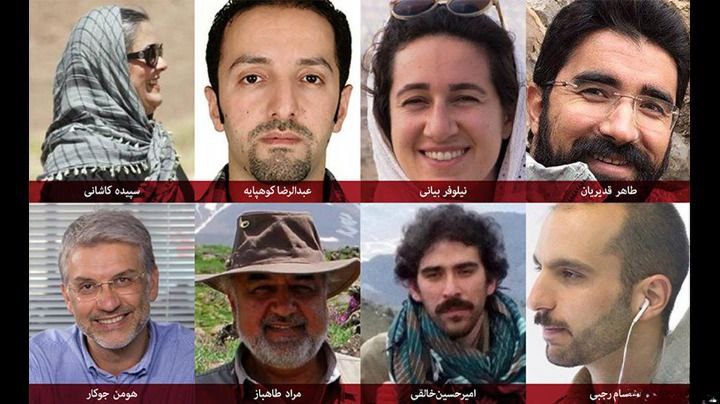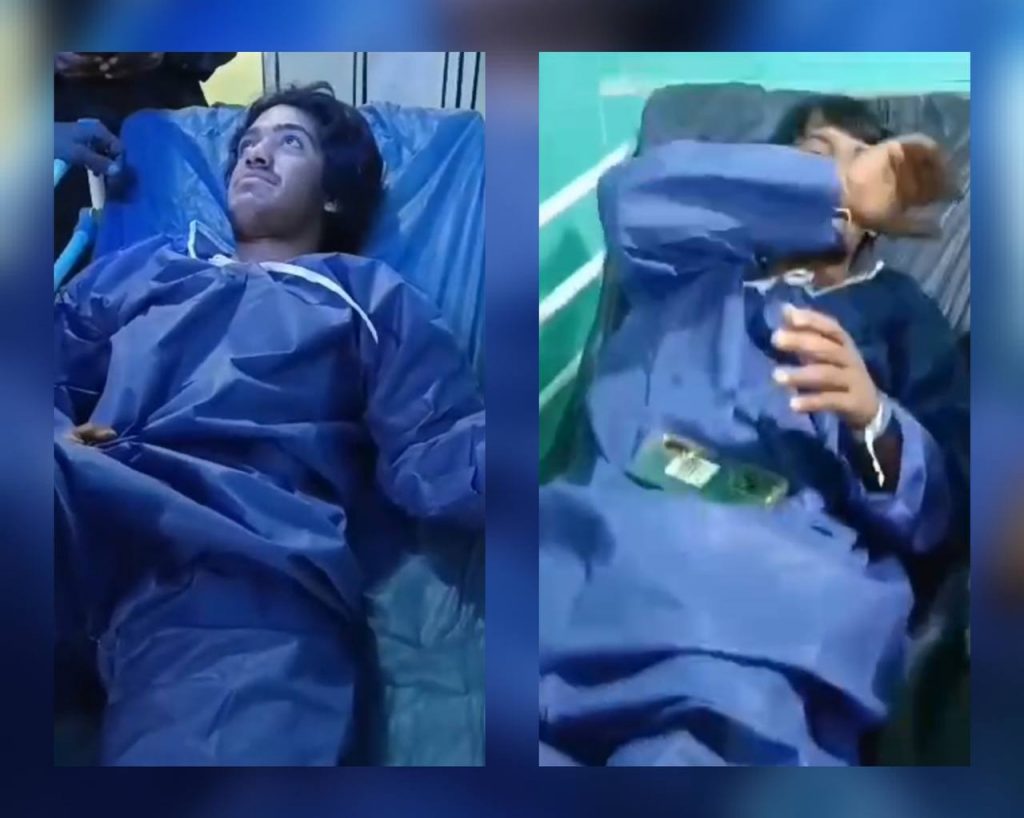On Monday, April 7, 2024, lawyer Hojjat Kermani announced that Saeedeh Kashani, Hooman Jokar, Taher Ghadirian, and Niloufar Bayani, four environmental activists who have been imprisoned in Iran since 2017, would soon be released.

These political prisoners were part of 55 environmental activists who were arrested in Bahman and Esfand of1396 (2017).
Dr. Kavous Seyed-Emami, one of them, was killed under torture by the Intelligence agents to force others to repeat the fabricated confessions desired by this suppressive organization regarding espionage. Some of the detainees were prominent figures whose torture by the Sepah had created difficulties. Taher Ghadirian was a young scientist selected as the 2008 UNESCO laureate. Niloufar Bayani worked as a consultant for the United Nations office. Hooman Jokar was the head of the International Project for the Conservation of Persian Wildlife. Saeedeh Kashani was an elite expert at the Faculty of Environment. Amirhossein Khaleghi was a prominent environmental activist who managed to convince farmers in protected areas to remove their livestock. Morad Tahbaz was an Iranian dual national businessman who devoted his capital to protecting Iran’s wildlife. Mohsen Eslami was an elite environmental chemistry expert and water pollution specialist and a lecturer at the university who authored expert reports on the adverse effects of the Gotvand Dam. Kaveh Madani was a Ph.D. in environmental science and the deputy chief of Iran’s Environmental Protection Presidency. Following Dr. Seyed-Emami’s death under torture, protests inside and outside the country against the mass arrests targeted by the Sepah took place.
These protests were so extensive and severe that Rouhani’s cabinet, the head of the Environmental Protection Organization, and some MPs were forced to show their reaction. In Khordad 1397 (2018), Isa Kalantari, the then head of Iran’s Environmental Protection Organization, in response to the extensive arrests of activists who had been arrested since the winter of 2017 and in an interview with the Islamic Republic News Agency, said that a “four-person committee” of the government had concluded that there was no evidence against these wildlife activists detained on charges of “spying.” Kalantari added that in his opinion, they were detained without committing any crimes. Kalantari spoke of the existence of a powerful spectrum, the “pressure group” in the Iranian government, which, according to him, “have a lot of power” but fundamentally “are not people of dialogue.” However, ultimately, various internal struggles demonstrated in Norouz ceremonies and hunger strikes, intensified internal crises, internal conflicts, and the failure of the core nuclear foreign policies have weakened the main power centers in the Islamic Republic and its seemingly powerful organs. This regime, which has been infamous internationally as a hostage-taker and international bandit for years, has taken Iranian dual nationals and some European tourists hostage for ransom and subjected them to the most oppression, harassment, and torture.
Imprisoning environmental activists, most of whom are dual nationals, is part of this category of hostages taken captive. They are opinion leaders and influential figures who have exposed the criminal policies of the Sepah mafia in the environmental field and have demanded their cessation. For example, they had sent reports on how the decision to build the Gotvand Dam was made, its excessive environmental effects, and salinity to the president’s office by Mohsen Eslami, Amirhossein Khaleghi, and Sam Rajabi. The construction of the Gotvand Dam, which Sepah built on the Karun River, has caused the stored water behind it to become saline due to the disregard for the environmental features of the location of the dam’s construction and its reservoir’s proximity to the Gachsaran salt domes for years. Wide areas behind this dam have now turned into salt marshes.
Experts consider the Sepah’s actions a major crime. The release of the aforementioned four prisoners, the result of decades of struggle and protest, should be taken as a good omen, and the struggle to achieve the slogan “Political prisoners must be freed!” should be pursued relentlessly.

